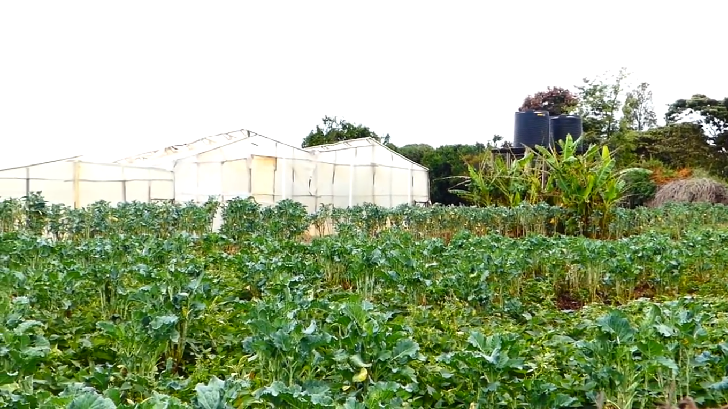Access to knowledge, information, and education
Youths’ access to knowledge and information is crucial for addressing the main challenges they face in agriculture. In order for rural youth to shape agricultural policies affecting them directly in terms of access to land, finance as well as market, they need to receive appropriate information and education. Formal primary and secondary education can provide young people with basic numeracy and literacy, managerial and business skills and introduce youth to agriculture and agribusiness. Meanwhile, non-formal education (vocational training and extension services) and tertiary agriculture education can offer youth more specific knowledge related to agriculture.
Development of youth research resource centers on agriculture will link young farmers by e-mail and mobile phone text messages. These linkages will help young farmers to interact with each other and share experiences, challenges, and solutions. Information management systems installed at each resource center will help young farmers to access information that will help them improve their production and marketing performance. Integrated training approaches are required for youth so that they may respond to the needs of a modern agricultural sector. This will help overcome young farmers’ lack of experience and motivate them to participate more in agriculture.
Access to land
Access to land is extremely important for young people trying to earn a livelihood in agriculture in rural areas. Advocacy towards implementing existing laws and regulations granting youth access to land is an important factor to be considered. Rehabilitation and subsequent distribution of land to young people is another mechanism which can motivate youth to participate in agriculture especially where there is a scarcity of arable land. Provision of loans specifically targeted at youth for acquiring land is also vital and can motivate the youth to venture in agriculture. Also, leasing to provide youth with access to land will also motivate them to participate in agriculture.
Access to financial services
Just like access to land, access to financial services such as savings and loans is of fundamental importance to start any agricultural activity. Young farmers need finance to cover the cost of inputs, costs of planting and harvesting as well as investments in improved productive capacities. Given that the agricultural sector is often exposed to so many risks that negatively affect production (Dalla Valle, 2012), access to insurance schemes is crucial for young farmers. Appropriate and inclusive financial services can equip youth with the resources and support to become more productive and economically active members of their households and communities.
Non-refundable grants, incentives and startup capital for promoting rural youth entrepreneurship are instruments of critical importance in motivating youth investing in agriculture. Grouping in informal saving clubs can help rural youth to improve their means of generating savings and increase their borrowing power. Competitions are another potential motivation particularly those targeting rural youths, where a good business plan is evaluated and rewarded or funded. As with Mfarm in Kenya, these competitions provide the winners with increased visibility giving a crucial boost to their business. Young farmers should also be given loans at a low-interest rate to encourage the rate of borrowing and should be properly guided and trained to ensure they use the loans effectively in order to be able to pay them back. Governments, national financial institutions, and other private sector have a vital role to play in the sustainability of youths inclusive financial services. By doing so, this could encourage the design of suitable financial services for youth which can act as motivation for youth’s participation in agriculture.
Access to markets
Market access for farmers means the ability to acquire farm inputs and services and the capability to deliver agricultural produce to buyers (IFAD, 2010a). Markets provide the opportunity to generate income, contributing to a reduction in hunger and poverty in developing countries. Markets also drive production to meet consumer demand in terms of quantity and quality (van Schalkwyk et al., 2012). Sustainable market access is required to guarantee smallholders an increase in income and lift them out of poverty. It also encourages commercial farming. Nevertheless, face a number of challenges while trying to access markets. Many young people lack experience and knowledge of how markets work. They lack management and entrepreneurial skills and lack information about prices. However, market and infrastructure development can create employment opportunities for youth in off-farm activities (brokers, intermediaries, and market information agents) and in jobs that do not require access to land other assets, but that calls for specific types of skills and knowledge e.g. ICT, where youth may have a comparative advantage. Education and training are essential if youth are to seize marketing opportunities and create their own businesses. Mentoring programmes to youth offer numerous advantages: knowledge and competencies to comply with market requirements; specific skills development; and increased confidence. Rural youth should be familiarized with and adapt modern market information services which exist e.g. ICT which facilitates marketing, trading, and social networking. ICT tools can also be used for online selling of agricultural products to consumers. When rural youth have a guaranteed access to markets (local and international), this can act as a motivation for them to participate in agriculture.
Infrastructure development
Infrastructure is a very important factor to build agricultural industry especially rural infrastructures such as transportation, electricity, water, and communications. It should be made available to open an entry access to villages so that industrial crops are easily distributed.
Institutions
More agriculture institutions must be built providing production facilities, credit, information, farming activities and post-harvest management. It is a good idea to create and develop policies on business training, funding (capital loan), technology and markets for the young people who will strive in the development of agricultural products of high economic value despite their relatively marginal land area. Youths should be trained in modern ways of agriculture and agribusiness and those who choose to start an enterprise should be funded, encouraged, be motivated and honored so that others will take interest in agriculture.
